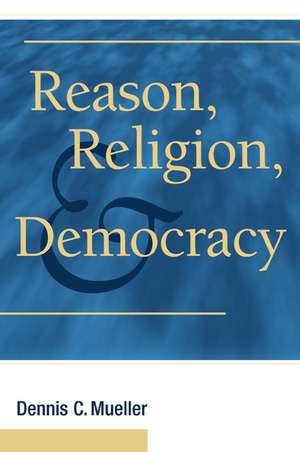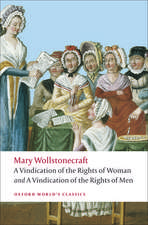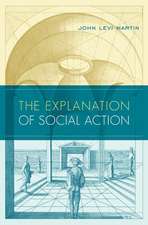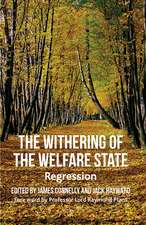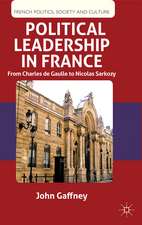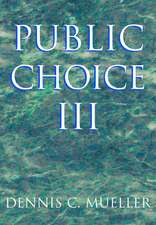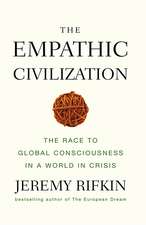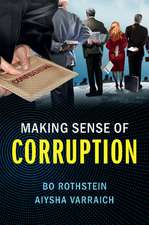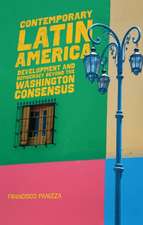Reason, Religion, and Democracy
Autor Dennis C. Muelleren Limba Engleză Paperback – 16 aug 2009
| Toate formatele și edițiile | Preț | Express |
|---|---|---|
| Paperback (1) | 291.69 lei 3-5 săpt. | |
| Cambridge University Press – 16 aug 2009 | 291.69 lei 3-5 săpt. | |
| Hardback (1) | 708.16 lei 6-8 săpt. | |
| Cambridge University Press – 23 aug 2009 | 708.16 lei 6-8 săpt. |
Preț: 291.69 lei
Nou
Puncte Express: 438
Preț estimativ în valută:
55.82€ • 58.06$ • 46.08£
55.82€ • 58.06$ • 46.08£
Carte disponibilă
Livrare economică 25 martie-08 aprilie
Preluare comenzi: 021 569.72.76
Specificații
ISBN-13: 9780521132732
ISBN-10: 0521132738
Pagini: 460
Ilustrații: 1 b/w illus. 15 tables
Dimensiuni: 152 x 230 x 24 mm
Greutate: 0.54 kg
Editura: Cambridge University Press
Colecția Cambridge University Press
Locul publicării:New York, United States
ISBN-10: 0521132738
Pagini: 460
Ilustrații: 1 b/w illus. 15 tables
Dimensiuni: 152 x 230 x 24 mm
Greutate: 0.54 kg
Editura: Cambridge University Press
Colecția Cambridge University Press
Locul publicării:New York, United States
Cuprins
1. Liberal democracy; Part I. Fundamentals: Evolution, Psychology, Reasoning and Religion: 2. Evolution, psychology and reason; 3. Religion; Part II. An Historical Look at the State, Democracy and Religion: 4. The first states; 5. Athens and Rome; 6. The Caliphate; 7. The Renaissance; 8. The Enlightenment; 9. Religion and democracy after the French revolution; Part III. The Institutions of Liberal Democracy: 10. Democracy and citizenship; 11. Rights; 12. Education, citizenship, immigration and democracy; Part IV. Challenges to Liberal Democracy: 13. Democracy and religion; 14. Building and protecting Liberal democracy.
Recenzii
'Mueller's new book tackles a very large question and approaches it with a very broad, but very fine brush. The first half of the book provides a biological explanation for the origin of both reason and religion and explores how reason and religion have affected the development of civilization and have, in turn, been affected by those civilizations. The second half of the book links religion and rationality to issues in contemporary politics. It focuses on such issues as the relationship between education, religion, and democracy; the effects of emigration; and constitutional design. I am impressed by the book and with the project itself. I found myself broadly sympathetic with the book's arguments and conclusions, and even where I disagree, the arguments are interesting and provocative.' Roger Congleton, George Mason University
'In addition to a wide-ranging and insightful discussion of religion and its history, Dennis Mueller analyzes religious intolerance and its lack of correlation with liberal democracy. One of the lessons in the book is that a competitive, 'private' market in religion is an institutional means of keeping such intolerance in check. Monopoly in religion, like elsewhere, is not very forgiving. Mueller is well known for his work in other areas; he is a major economist. In my view this is his best book. Those of you who know his other works realize that this is a strong endorsement indeed.' Robert Tollison, Clemson University
'Dennis Mueller reworks enlightenment themes, offering a wide-ranging and provocative defense of the values of reason and liberal democracy and a critique of the role of religion: wide-ranging in terms of both ideas deployed and historical contexts considered; provocative in treating both religious fundamentalism of all forms and religious diversity as threats to liberal democracy.' Alan Hamlin, University of Manchester
'This is bound to be a controversial book. Mueller argues for consideration of restricted franchise – with only those 'with more education or loyalty to the state' forming the electorate. He questions the wisdom of the 'freedom to educate one's children as one pleases' and raises doubts about relatively open immigration policies. He underlines what he sees as a basic tension between religion (the 'antithesis of science') and liberal democracy. Above all, it is a courageous book, tackling difficult and tender questions about how the delicate balance between liberalism and democracy can best be managed. Not everyone will agree with his position. But everyone should agree that the challenges he points to are genuine and highly significant in the contemporary world.' Geoffrey Brennan, Australian National University
'In addition to a wide-ranging and insightful discussion of religion and its history, Dennis Mueller analyzes religious intolerance and its lack of correlation with liberal democracy. One of the lessons in the book is that a competitive, 'private' market in religion is an institutional means of keeping such intolerance in check. Monopoly in religion, like elsewhere, is not very forgiving. Mueller is well known for his work in other areas; he is a major economist. In my view this is his best book. Those of you who know his other works realize that this is a strong endorsement indeed.' Robert Tollison, Clemson University
'Dennis Mueller reworks enlightenment themes, offering a wide-ranging and provocative defense of the values of reason and liberal democracy and a critique of the role of religion: wide-ranging in terms of both ideas deployed and historical contexts considered; provocative in treating both religious fundamentalism of all forms and religious diversity as threats to liberal democracy.' Alan Hamlin, University of Manchester
'This is bound to be a controversial book. Mueller argues for consideration of restricted franchise – with only those 'with more education or loyalty to the state' forming the electorate. He questions the wisdom of the 'freedom to educate one's children as one pleases' and raises doubts about relatively open immigration policies. He underlines what he sees as a basic tension between religion (the 'antithesis of science') and liberal democracy. Above all, it is a courageous book, tackling difficult and tender questions about how the delicate balance between liberalism and democracy can best be managed. Not everyone will agree with his position. But everyone should agree that the challenges he points to are genuine and highly significant in the contemporary world.' Geoffrey Brennan, Australian National University
Notă biografică
Descriere
This book emphasizes the difference between religion and science as means for understanding causal relationships.
